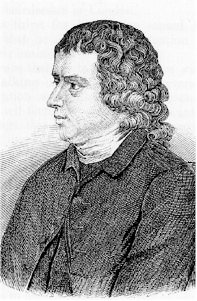
The "Londonderry Air" is an Irish air that originated in County Londonderry, first recorded in the nineteenth century. The tune is played as the victory sporting anthem of Northern Ireland at the Commonwealth Games. The song "Danny Boy" written by English lawyer Fred Weatherly uses the tune, with a set of lyrics written in the early 20th century.

Argyll, sometimes called Argyllshire, is a historic county and registration county of western Scotland.

"Be Thou My Vision" is a traditional Christian hymn of Irish origin. The words are based on a Middle Irish poem that has traditionally been attributed to Dallán Forgaill.
"She Moved Through the Fair", also called "She Moves Through the Fair", is a traditional Irish folk song, which exists in a number of versions and has been recorded many times. The narrator sees his lover move away from him through the fair, after telling him that since her family will approve, "it will not be long, love, till our wedding day". She returns as a ghost at night, and repeats the words "it will not be long, love, till our wedding day", intimating her own tragic death and the couple's potential reunion in the afterlife.
"The Water Is Wide" is a folk song of Scottish origin. It remains popular in the 21st century. Cecil Sharp published the song in Folk Songs From Somerset (1906).
"Trasna na dTonnta" is a traditional Irish song often taught to primary school children. It has the same tune as the 20th century Scottish song "Westering Home".
"The Parting Glass" is a Scottish traditional song, often sung at the end of a gathering of friends. It has also long been sung in Ireland, where it remains popular and has strongly influenced how it is often sung today. It was purportedly the most popular parting song sung in Scotland before Robert Burns wrote "Auld Lang Syne".
"Mná na hÉireann" is a poem written by Ulster poet Peadar Ó Doirnín (1700–1769), most famous as a song, and especially since set to an air composed by Seán Ó Riada (1931–1971).

"Fair Margaret and Sweet William" is a traditional English ballad which tells of two lovers, of whom either one or both die from heartbreak. Thomas Percy included it in his folio and said that it was quoted as early as 1611 in the Knight of the Burning Pestle. In the United States, variations of Fair Margaret have been regarded as folk song as early as 1823.

"The Bonnie Banks o' Loch Lomond", or "Loch Lomond" for short, is a Scottish song. The song prominently features Loch Lomond, the largest Scottish loch, located between the council areas of West Dunbartonshire, Stirling and Argyll and Bute. In Scots, "bonnie" means "attractive", "beloved", or "dear".

"Come Thou Fount of Every Blessing" is a Christian hymn written by the pastor and hymnodist Robert Robinson, who penned the words in the year 1758 at the age of 22.
"Mairi's Wedding" is a Scottish folk song originally written in Gaelic by John Roderick Bannerman (1865–1938) for Mary C. MacNiven (1905–1997) on the occasion of her winning the gold medal at the National Mòd in 1934. In 1959, James B. Cosh devised a Scottish country dance to the tune, which is 40 bars, in reel time.
The Ash Grove is a traditional Welsh folk song whose melody has been set to numerous sets of lyrics. The best-known English lyrics were written by Thomas Oliphant in the 19th century.
Sir Hugh Stevenson Roberton was a Scottish composer and Britain's leading choral-master.

"The Cuckoo" is a traditional English folk song, also sung in the United States, Canada, Scotland and Ireland. The song is known by many names, including "The Coo-Coo", "The Coo-Coo Bird", "The Cuckoo Bird", "The Cuckoo Is a Pretty Bird", "The Evening Meeting", "The Unconstant Lover", "Bunclody" and "Going to Georgia". Lyrics usually include the line : "The cuckoo is a pretty bird, she sings as she flies; she brings us glad tidings, and she tells us no lies."
Islay is the southernmost island of the Inner Hebrides of Scotland. Known as "The Queen of the Hebrides", it lies in Argyll just south west of Jura and around 40 kilometres north of the Northern Irish coast. The island's capital is Bowmore where the distinctive round Kilarrow Parish Church and a distillery are located. Port Ellen is the main port.
"Mo Ghile Mear" is an Irish song. The modern form of the song was composed in the early 1970s by Dónal Ó Liatháin (1934–2008), using a traditional air collected in Cúil Aodha, County Cork, and lyrics selected from Irish-language poems by Seán "Clárach" Mac Domhnaill (1691–1754).
"Early, Early in the Spring" is a British folk song that has been collected from traditional singers in England, Scotland, Ireland, Canada and the United States. It tells the story of a sailor gone to sea whose beloved promises to wait for him. When he returns she has married a rich man and he goes back to sea with a broken heart and a bitter attitude. In a few American versions the betrayed lover is a cowboy.
“Aliliú na Gamhna” is an Irish folk song, simply translated as “Ah, the calves” or “Oh, the cows”. The word aililiú is pronounced similarly to “hallelu” or “hallelujah”, with a similar connotation of praise or joy.

Mary Connell MacNiven, born McNiven and sometimes billed as Mrs Campbell/Mrs John Campbell was an award-winning Gaelic singer and the inspiration behind the famous Scottish song Mairi's Wedding.









